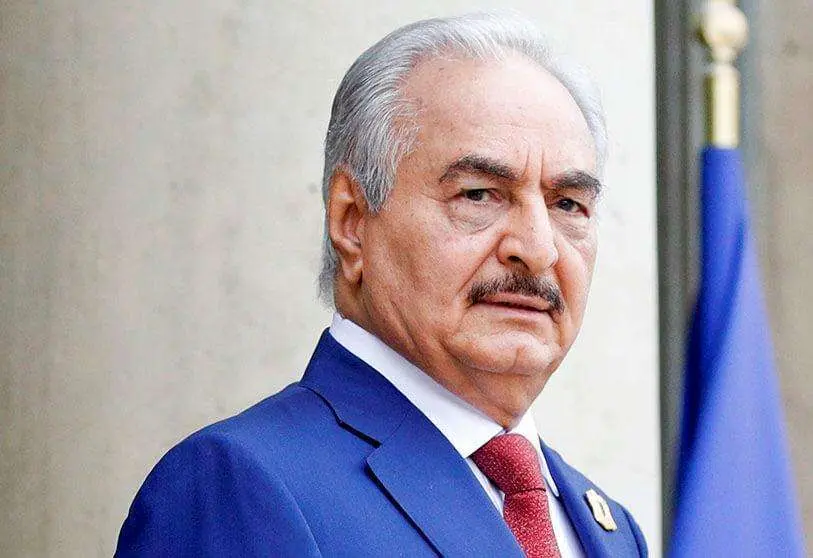Haftar announces that it will lift the blockade on the oil industry in Libya

Marshal Khalifa Haftar, guardian of the unrecognised government in eastern Libya and a strong man in the country, announced today that he will authorise the resumption of oil production, which his like-minded militias have been blocking since last February. In a televised speech, the official stressed that the activity will be resumed "with all the necessary conditions and procedural measures to ensure a fair distribution of the benefits", referring to the alleged agreement with the authorities in the west.
The deputy prime minister of the government of National Accord supported by the UN in Tripoli (GNA), Ahmed Maiteeg, spoke along the same lines, and minutes later revealed that a committee would be formed to supervise this fair distribution of dividends. "The committee will have the task of coordinating the work of the parties, the joint preparation of the budget and the transfer of funds to make payments and cover the public debt," he told the media in Tripoli.
The announcement comes just days after Russia and Turkey, the two most influential powers in the Libyan conflict, announced "substantial progress" in the bilateral negotiations they are holding on the future of the North African nation. Turkey, together with Qatar, is the main supporter of the NAG, while Russia, Egypt, Saudi Arabia, the United Arab Emirates and Sudan support Marshal Haftar's aspirations. The European Union and the UN, for their part, are attempting to regain their lost leadership position vis-à-vis Ankara and Moscow in the efforts to resolve the civil war that has bloodied the country since NATO contributed to the victory of the heterogeneous rebel groups over Muammar al-Qadhafi's tyranny in 2011.
Hours before Haftar's intervention, the president of the Libyan National Oil Company (NOC), Mustafa Sanallah, had warned that hydrocarbon production in Libya could not return to normal until a genuine demilitarisation was undertaken to disarm the numerous local militias and expel the thousands of foreign mercenaries fighting in the country.
In a statement broadcast on social networks, he also warned that "in the current conditions the state of force majeure" in force since last February cannot be lifted, which in addition to multi-million dollar losses causes prolonged daily power cuts throughout the country and shortages of both city gas and other fuels. The state of force majeure, imposed by Haftar's troops both in the Gulf of Sirte, the heart of Libya's oil industry, and in the western fields that supply Tripoli and other major cities, was briefly abolished last July. "The oil sector must not be politicised; it cannot be a political bargaining chip," Sanallah said.
The Libyan conflict took a new turn this week after both the head of the government in the east, Abdallah al Thani, and the leader of the ANG's presidential council, Fayez al Serraj, announced their resignation amid popular protests in both regions over the high cost of living. In the case of the capital, the demonstrations have also revealed the struggle for power within the ANG, especially between the circle of the interior minister, Fathi Bashaga, and that of Al Serraj himself, whose resignation Turkey regretted today. The last year of war has reduced the oil production in Libya to less than 100,000 barrels per day, which reached 1.8 million in the time of the dictatorship.










